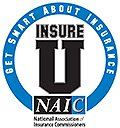skip navigation

|
|
|
|
| For Consumers > Disaster Preparedness > Pet Disaster Plan |
 |
| Information on disaster preparedness for your pets. |
| |
|
I. Develop an Emergency Pet Plan in advance
II. Contact your veterinarian or local humane society for information on preparing your pets for an emergency.
Before the Disaster:
- Make sure that your pets are current on their vaccinations. Pet shelters may require proof of vaccination.
- Have a current photograph.
- Keep a collar with identification on your pet and have a leash on hand to control your pet.
- Have a properly sized pet carrier for each animal – carriers should be large enough for the animal to stand and turn around.
- Plan your evacuation strategy and don’t forget your pet! Specialized pet shelters, animal control shelters, veterinary clinics and friends and relatives out of harm’s way are ALL potential refuges for your pet during a disaster. Make plans in advance. Don’t wait for an emergency – you may not be able to find a place for your pet.
- Bring pets indoors well in advance of a pending storm.
- If you plan to shelter your pet – work it into your evacuation route planning.
During the Disaster:
- Animals brought to a pet shelter are required to have: Proper identification collar and rabies tag, proper identification on all belongings, a carrier or cage, a leash, an ample supply of food, water and food bowls, any necessary medications, specific care instructions and news papers or trash bags for clean-up.
- Pet shelters will be filled on first come, first served basis. Call ahead and determine availability.
After the Disaster:
- Walk pets on a leash until they become re-oriented to their home – often-familiar scents and landmarks may be altered and pets could easily be confused and become lost. Also, downed power lines, and debris can all pose a threat for animals after a disaster.
- If pets cannot be found after a disaster, contact the local animal control office to find out where lost animals can be recovered. Bring along a picture of your pet if possible.
- After a disaster, animals can become aggressive or defensive - monitor their behavior.
Pet Disaster Supply Kit
- Proper identification including immunization records and photographs.
- Ample supply of food and water.
- A carrier or cage.
- Medications
- Muzzle, collar with a rabies vaccination tag and leash.
|
| |
|





